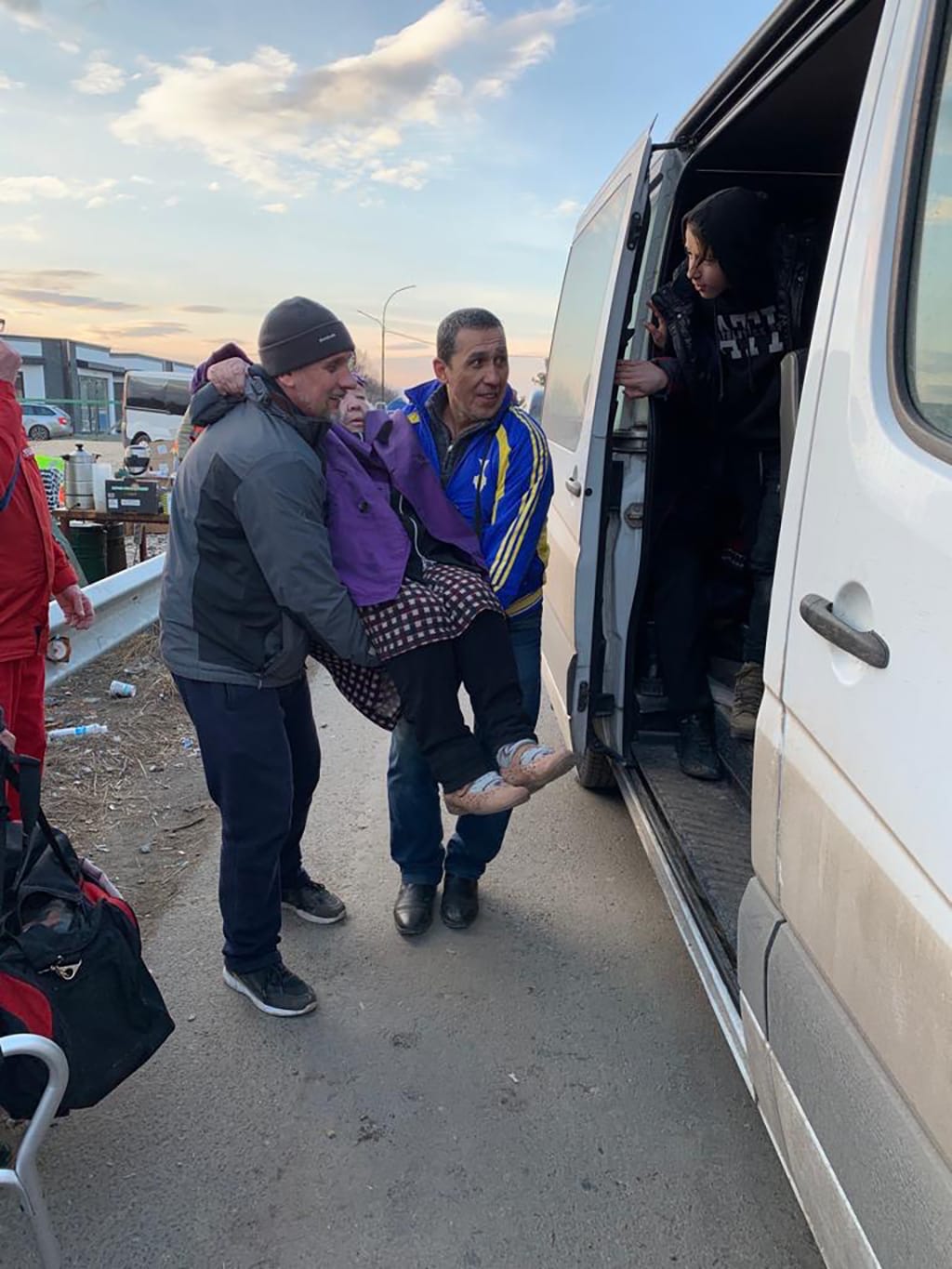Russia’s war in Ukraine has many people on this side of the Atlantic feeling helpless — what can we possibly do in the face of a humanitarian crisis 6,000 miles away?
Santa Monica resident Lauren Reicher-Gordon, senior vice president of the nonprofit Kidsave, said her organization was already poised to leap into action. Since 2016, Culver City-based Kidsave has been operating on the ground in Ukraine, with a mission of placing orphaned older kids and teens into loving homes. They also provide mentorship for teens.
Kidsave operates in communities around the world: in Sierra Leone, Russia, Colombia, Ukraine and all around the United States.
But beginning on Feb. 24, Kidsave pivoted its focus toward getting kids and their families, biological and adoptive, into safe spaces away from the rapidly worsening conflict in Ukraine, focusing particularly on orphanages in the cities of Mykolaiv and Kherson in the south of the country near Crimea.
“There was an immediate, dramatic need to find safety for the children and families that are there,” Reicher-Gordon said. “We have our team on the ground, who have been working nonstop to get children and families to safety.”
Reicher-Gordon said the efforts have been operating around the clock but, up until Friday, were devastatingly slow. With just a couple of small vehicles, Kidsave’s partners on the ground in Ukraine were moving small groups one at a time in passenger vehicles all the way across the country, sometimes driving 900 miles on dirt roads to get to safety at the border.
When they arrive at the border, drivers deliver kids, moms and pregnant women (men are blocked from leaving the country), pick up humanitarian supplies, turn around and drive back to pick up another family.
Through this laborious process, Kidsave had successfully moved about 200 children and family members out of harm’s way and toward safety in the west as of Thursday afternoon, one week into the invasion.
“We desperately needed more vehicles to move children more quickly,” Reicher-Gordon said. “There’s such an urgency to getting them out, as you can imagine, reading the news.”
On Thursday, Kidsave had a breakthrough: through donor-supplied funds, the charity’s partners have been able to purchase a 21-seater bus and rent two 12-seat passenger buses to move people more quickly. The organization was also working to purchase two more 12-to-16-seater vans, which will be able to blend in better with other vehicles traversing Ukraine. “They don’t want to be so obvious on the roads,” Reicher-Gordon said.
She said 200 was just the start; Kidsave’s goal is to move more than 1,000 kids and families to safety and they aren’t limited to just children in the orphanages they work with.
“I think at this point, we’re working to get as many children and families out as we can,” Reicher-Gordon said. “So, whether we are currently working in the orphanage, or if we are able to find ways to help [other] children to safety, we’ll do that.”
By Friday, Kidsave had secured a total of seven vehicles and one large cargo vehicle to make transports. All this is done with permission by the Ukraine Ministry of Social Policy, which granted orphanage directors permission to evacuate these vulnerable children into the safety of nearby Slovakia and Poland.
Overall, about 84 percent of funds expended by Kidsave go to their programs, but because of the underlying support from some donors (the organization’s “Kidsave Guardians”), 100 percent of public donations support programs, meaning every penny donated toward operations in Ukraine will go toward the current relief effort.
Right now, donations to Kidsave’s Ukraine fund are going directly to the purchase of vehicles, gasoline and wifi hotspots, both of which make it possible to move people out of hot zones and toward safety across the border.
“We’ve been very fortunate,” Reicher-Gordon said, in that Kidsave has received a wave of donations from all around the U.S. and abroad. “I think our donors trust us; they know that we will stretch the dollars as much as we can, and make the best use of the funds that we’re getting.”
Reicher-Gordon said that includes her own neighbors who have contributed in Sunset Park, where “everybody has been incredibly generous and supportive.”
emily@smdp.com


